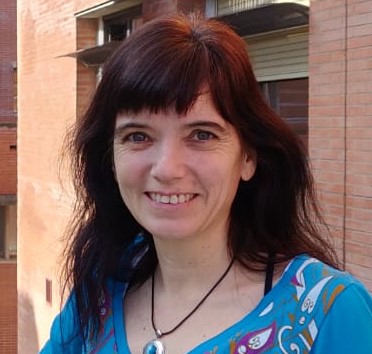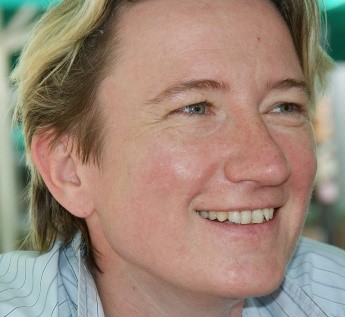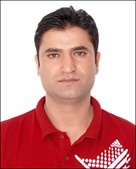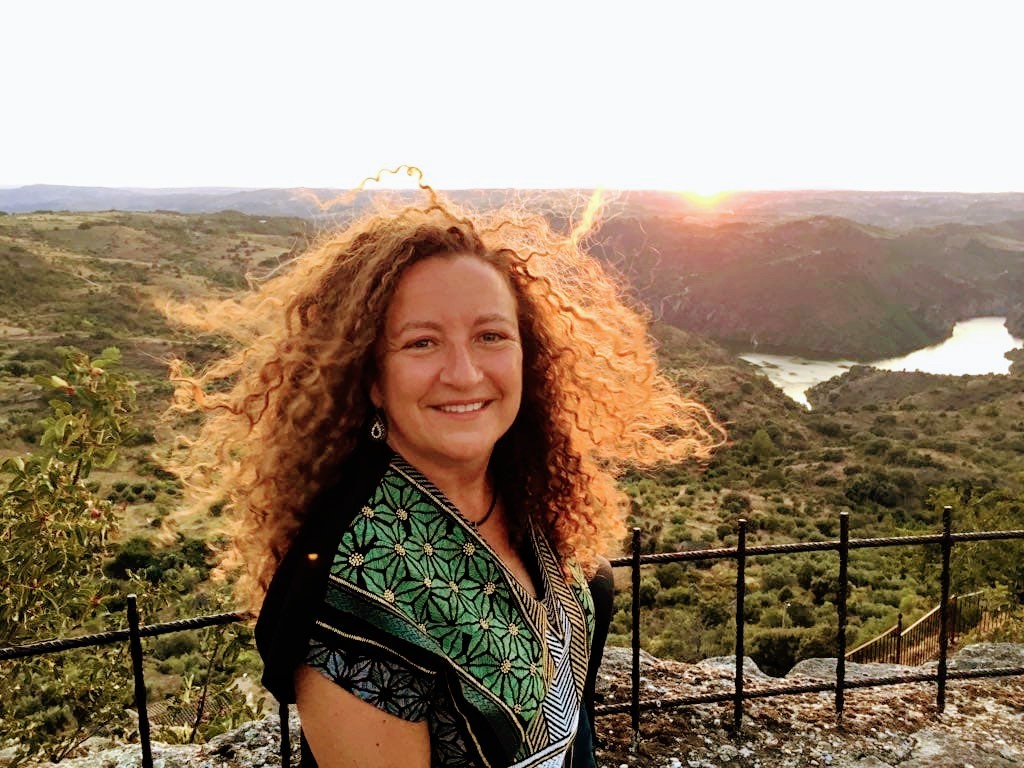|
|
|
Chair
Romi Pena
University of Lleida
Lleida, Spain

Term of service (1st, 2023-2027)
Professor Romi Pena, veterinarian by training, currently lectures on animal genetics and biotechnology at the University of Lleida, Spain. Pena specializes in genome structure and functional characterization. For a long time, Pena’s research focused on the improvement of carcass and meat quality trait in pigs, particularly in heavy pigs used in the production of elite dry-meat products. At the moment, Pena’s research line has shifted to the use of productivity data and immune cues to detect animals with resilient responses to infectious diseases. Pena is interested in finding phenotypes and biomarkers related to resilience in healthy animals. When not at work, Pena is most likely cooking or walking her dog.
Co-Chair
Sabine Hammer
University of Veterinary Medicine Vienna
Vienna, Austria

Term of service, (2nd, 2023-2027)
Dr. Hammer teaches and carries out research in the context of molecular immunology at the Insti-tute of Immunology (University of Veterinary Medicine Vienna). One of her main interest focuses on the application of PCR-based MHC typing techniques in various pig lines to deepen the understanding of the architecture and polymorphism of the swine leukocyte antigen (SLA) system and their role in disease, vaccine and transplant responses. As a member of the ISAG/IUIS SLA Nomenclature Commit-tee, she validates newly identified SLA sequences according to the guidelines established for main-taining high quality standards of the accepted sequences. As a founding member of the European Canine Lymphoma Network, she harmonizes analytical protocols and research strategies in canine hematopoietic tumours. Her research contributes to the establishment of molecular tools for tumour diagnostics in companion animals e.g., lymphocyte clonality testing in canine and feline lymphomas and c-KIT somatic mutation analysis in canine mast cell tumours.
Member
Matthew Adekunle Adeleke
University of KwaZulu-Natal
Durban, South Africa
Term of service (1st, 2023-2027)
Member
Tavsief Ahmad
Division of Animal Genetics & Breeding, FVSc & AH, SKUAST- Kashmir India
srinagar, India

Term of service (1st, 2019-2025)
Tavsief Ahmad is currently a researcher at Dr. Romana Nowak’s laboratory in cellular biology of reproduction, Department of Animal Sciences, University of Illinois at Urbana Champaign. His interests include population genetics, reproductive physiology, genomics, bioinformatics, and biostatistics. Ahmad’s research areas include SNP study in different farm animal traits such as litter size, foot rot, and endometriosis; genetic evaluation using phenotypic data and statistical modeling; management information systems; and high-throughput sequence analysis—DNA and RNA sequences, slide sequences, and single-cell transcriptomics. He received his MVSc in animal genetics and breeding from Sher-e-Kashmir University of Agricultural Sciences and Technology of Kashmir, India, and his PhD from ICAR–National Dairy Research Institute, Karnal, India.
Member
Marta Alonso-Hearn
NEIKER-Basque Research and Technology Alliance (BRTA)
Derio, Bizkaia, Spain

Term of service (1st, 2021-2025)
Marta Alonso-Hearn has a BS degree in biological sciences from the University Complutense of Madrid (Spain) and a PhD in science from the Department of Molecular Biology, University Autonóma of Madrid. In 1999, she received a postdoctoral fellowship from the Spanish Ministry of Science and Education to work at the Microbiology Department, College of Agricultural Sciences, Oregon State University. In 2001, she was hired as an assistant professor by the same institution. In 2005, she joined the Department of Biomedical Sciences, College of Veterinary Science (Oregon State University). With funds obtained from the paratuberculosis (PTB) integrative program (Animal Biosecurity program, United States Department of Agriculture), she focused on the study of the biology and pathogenesis of Mycobacterium avium subsp. paratuberculosis (MAP). In 2008, Alonso-Hearn joined the Animal Health Department of NEIKER-Basque Institute of Agricultural Research and Development. In 2013, she met the quality requirements of production and scientific-technical activity, obtaining the Certificate of Research Proficiency from the Spanish Agency of Research Evaluation (I3 Program). Alonso-Hearn’s research area focuses on the characterization of how both the infected host and MAP contribute to bovine PTB. An in-depth characterization of the complex molecular and immunological interplay between MAP and the host is essential for the development of novel vaccines, therapeutics, diagnostic tools, and breeding programs to enhance genetic resistance to bovine PTB. Alonso-Hearn research projects try to elucidate several issues regarding MAP-host interaction with specific emphasis on (1) the characterization of the virulence mechanisms involved in the bacterium’s ability to invade and survive within host macrophages, (2) the assessment of the factors influencing this interplay, and (3) the identification of immunological and genetic markers capable of distinguishing distinct outcomes of infection and hosts with a PTB-associated susceptible/tolerant/resistant genotype. Alonso-Hearn is also interested in understanding the mechanisms involved in the genetic regulation of the host immune response against MAP. To this end, a multidisciplinary approach including epidemiology, cell biology, microbiology, immunology, molecular biology, -omics technologies (transcriptomics, proteomics, genomics), and bioinformatics is required.
Member
Kathryn McRae
AgResearch
Mosgiel, New Zealand

Term of service (1st, 2021-2025)
Kathryn McRae is a Senior Scientist in the Animal Genomics team at AgResearch. Her farming background, coupled with her interest in genetics, led her to complete a Master of Science in genetics with the University of Otago in collaboration with AgResearch. Subsequently, she graduated with a PhD from Dublin City University as a Teagasc Walsh Fellow. Both her Masters and PhD research investigated the genetic basis of resistance to gastrointestinal nematodes in sheep. Her scientific background includes molecular biology, genomics, genetics, parasitology, and bioinformatics. Her main research interest is using these skills to investigate the genetic basis of disease in livestock, including gastrointestinal nematode infection and respiratory disease. The goal of this research is to breed healthy, productive animals that are more resilient to external stressors.
Member
Eduard Murani
Institute for Farm Animal Biology FBN Dummerstorf
Dummerstorf, Germany

Term of service (1st, 2021-2025)
Dr. Eduard Murani is a senior scientist in the Genome Biology Unit of the Research Institute for Farm Animal Biology (FBN) in Dummerstorf, Germany. His major research interest is in biology and genetics of the neuroendocrine stress response - a major trade-off factor between performance and health - that he pursues since his PhD studies at the Institute of Animal Breeding Science at the University of Bonn. Identification of a causal mutation reprogramming the neuroendocrine HPA axis allowed him to explore fundamental mechanisms of its function, including interconnections to immune response. In his ongoing research, he aims to elucidate the role of metabolism in this connection which ultimately should lead to better understanding of the trade-offs and how to avoid them.
Member
Irina Polejaeva
Utah State University
Logan, UT United States
Term of service (1st, 2019-2025)
|
|
